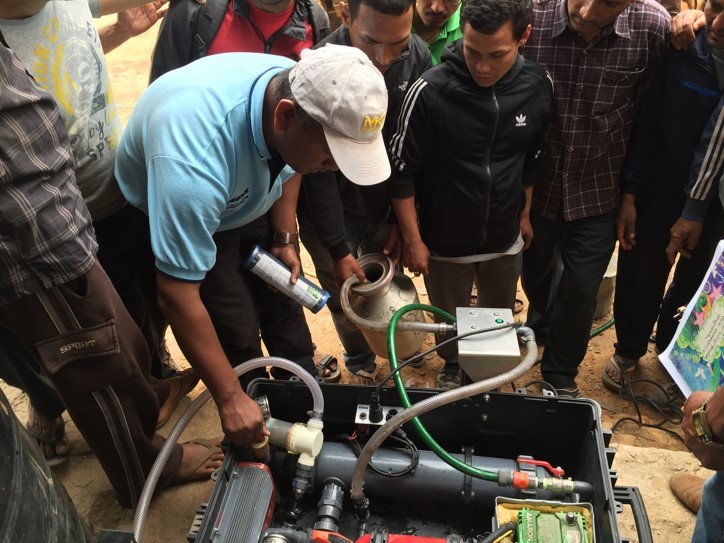Structural change and digital transformation create competitive pressure, especially for small
and medium-sized enterprises. This is because they lack the capacity to deal with digitalization.
As part of the "GrowIn 4.0" project, 15 partners from Belgium, Denmark, Germany, England and the
Netherlands are developing innovative methodologies, tools, and concepts for these companies, in
order to facilitate the developments. In close cooperation with the Ostfalia University of Applied
Sciences, wito gmbh is hoping to increase the innovation and competitiveness of local companies. In
an interview with editor Melanie Stallmann, wito managing director Günter Eckhardt, and the
Ostfalia University of Applied Sciences' Prof. Dr.-Ing. Diederich Wermser, Professor Dr.-Ing. Gert
Bikker and Dipl.-Biol. Kai Hillebrecht talk about the enormous opportunities presented to the
companies as a result of the collaboration.
What exactly does the "GrowIn 4.0" project involve, and what benefit does it entail for
companies?
Bikker: We want to provide targeted support to small and medium-sized enterprises
on their road towards digitalization. On the one hand, we're investigating the effects of
digitalization on existing business concepts in terms of strategy development and business-model
development. On the other, the project aims to promote technology transfer between research
institutes, universities and business – in all economic sectors.
What does this mean exactly?
Wermser: Today, every company – whatever the size – has enterprise software which
handles, for example, personnel management, accounting, inventory management, and much more. In
addition, there are production tools via which the machines are operated and controlled. However,
there is a gap between these two, where many tasks are still done manually in a time-consuming
manner. Our goal is to digitize the entire chain from top to bottom. Amazon's power, for example,
lies in the fact that from the very top (when you order something) until the very bottom (where the
last car is monitored), each step is digitized. There is not a single stage where a human has to
write on paper or read anything.
But can small enterprises manage to do what the larger ones are putting into
practice?
Bikker: Of course. Although of course each company must decide itself on
data-transfer matters. We can advise and support them in how to collect and use this data first of
all, and then in how to do so in an affordable manner. Because, technically speaking, anything is
possible. For this reason, it's all the more important to get some advice. It's very important in
the process chain that you gather a lot of information. No-one wants to tell the outside world,
though, why they produce products at lightning speed. It can be seen as very practical however, for
example, if a supplier can automatically learn from production-chain experiences how much of which
materials is needed and when.
Following your first encounters, where do you feel is the greatest need for advice in the
companies that you have visited so far in the Peine district?
Wermser: The interests and issues around Digitization and Industry 4.0 were as
varied as the sectors in which the companies operate. Primarily, it is a question of possibilities
in terms of materials and production, and the corresponding staffing requirements.
What does the subsequent collaboration between business and the University look
like?
Hillebrecht: If asked to do so, we can determine the requirements directly in situ
and see how we can fulfil them in the form of projects. In this respect, we work with individually
tailored, targeted solutions taken from all areas of the digitization field.
Wermser: One advantage for companies is that we know about the University's
technical innovations, and can combine – or even promote – them, depending on the needs and wishes
of the companies.
What role does wito gmbh play in this collaboration?
Eckhardt: We know the companies, make contact and organise workshops on the topic.
Ostfalia's experts then give their opinion on a variety of topics, and make the companies aware of
the possibilities offered by the digitization.
How open have SMEs been to new ideas to date?
Wermser: For many, the topic is completely uncharted territory, because for a long
time digitization took place based on economies of scale, and has not therefore been affordable for
SMEs. Recently though, technological developments have come so far that digitization is much more
flexible thanks to open standards, and can be achieved with far lower cost and effort. Compared to
other European nations, we also enjoy the luxury that digitization projects within smaller
companies can be facilitated through various funding programmes. And that's exactly what the
companies should be taking advantage of.
Eckhardt: Because anyone shying away from digitization will eventually disappear
from the market. It must be said though, that even the smallest of businesses in the Peine district
are mostly already equipped with modern technology, and are therefore essentially sympathetic
towards digitalization. However, many people feel somewhat inhibited about contacting universities
with a view to taking advantage of research contracts or projects. But this is precisely what we
want to change.
Text: Peiner Wirtschaftsspiegel, 04/2018 (Edition 2/2018) Link:
to article from Peiner Wirtschaftsspiegel publication
Please contact
Dennis Haarmeyer for more information on this
international activity.
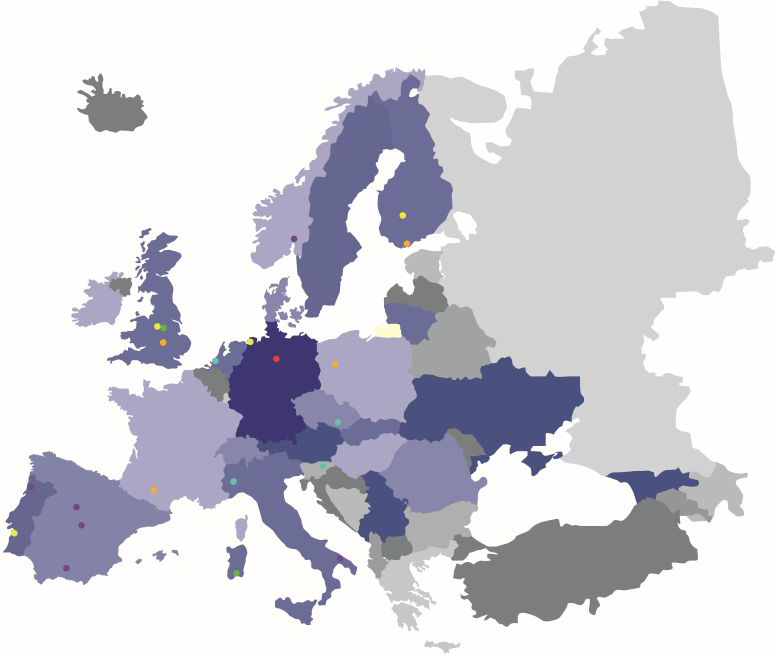



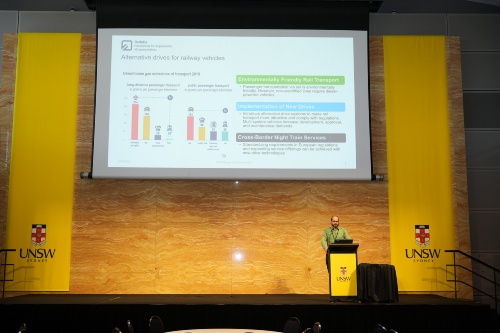 Panel lecture by Prof. Dr.-Ing. Carsten Stechert
Panel lecture by Prof. Dr.-Ing. Carsten Stechert
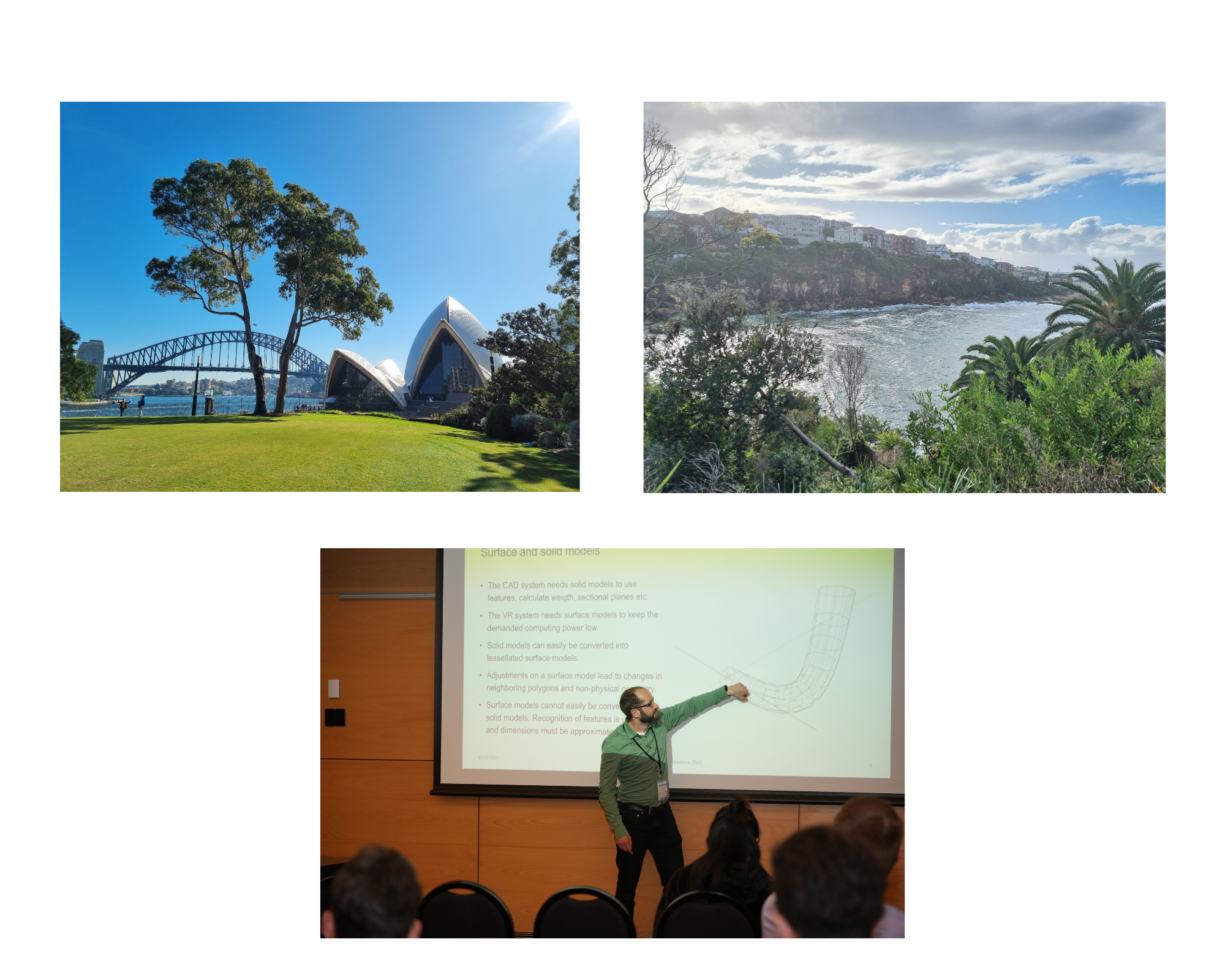
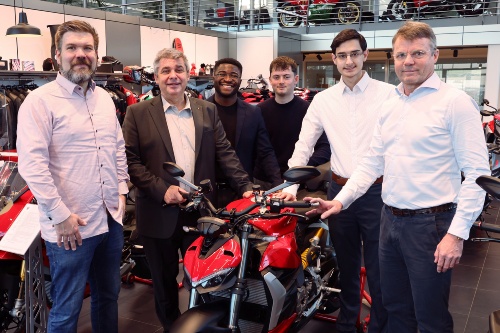
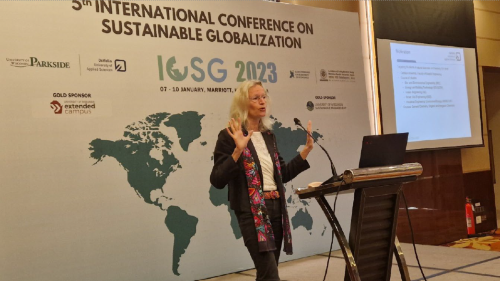 Presentation of Dr. agr. Hedda Sander
Presentation of Dr. agr. Hedda Sander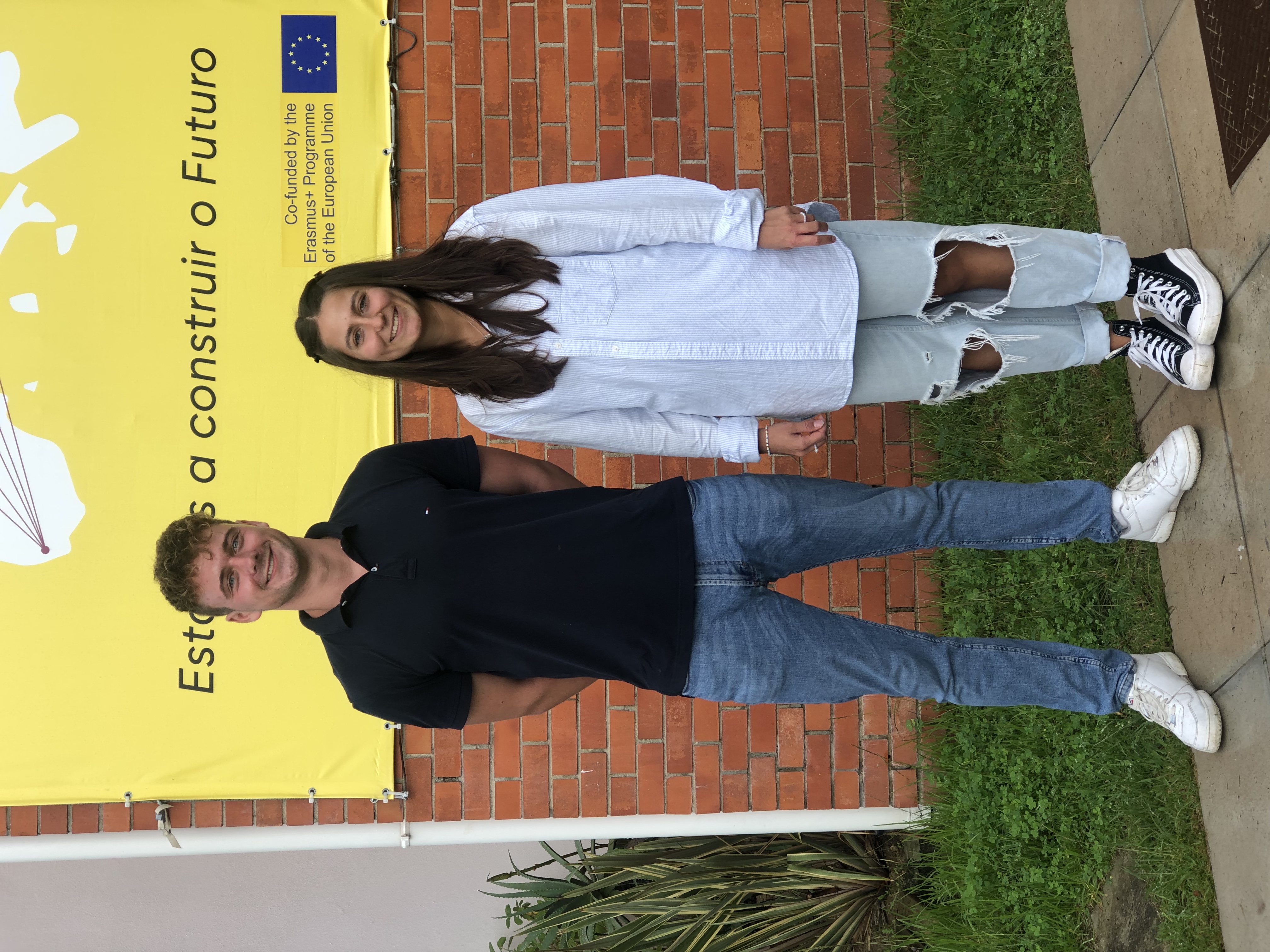
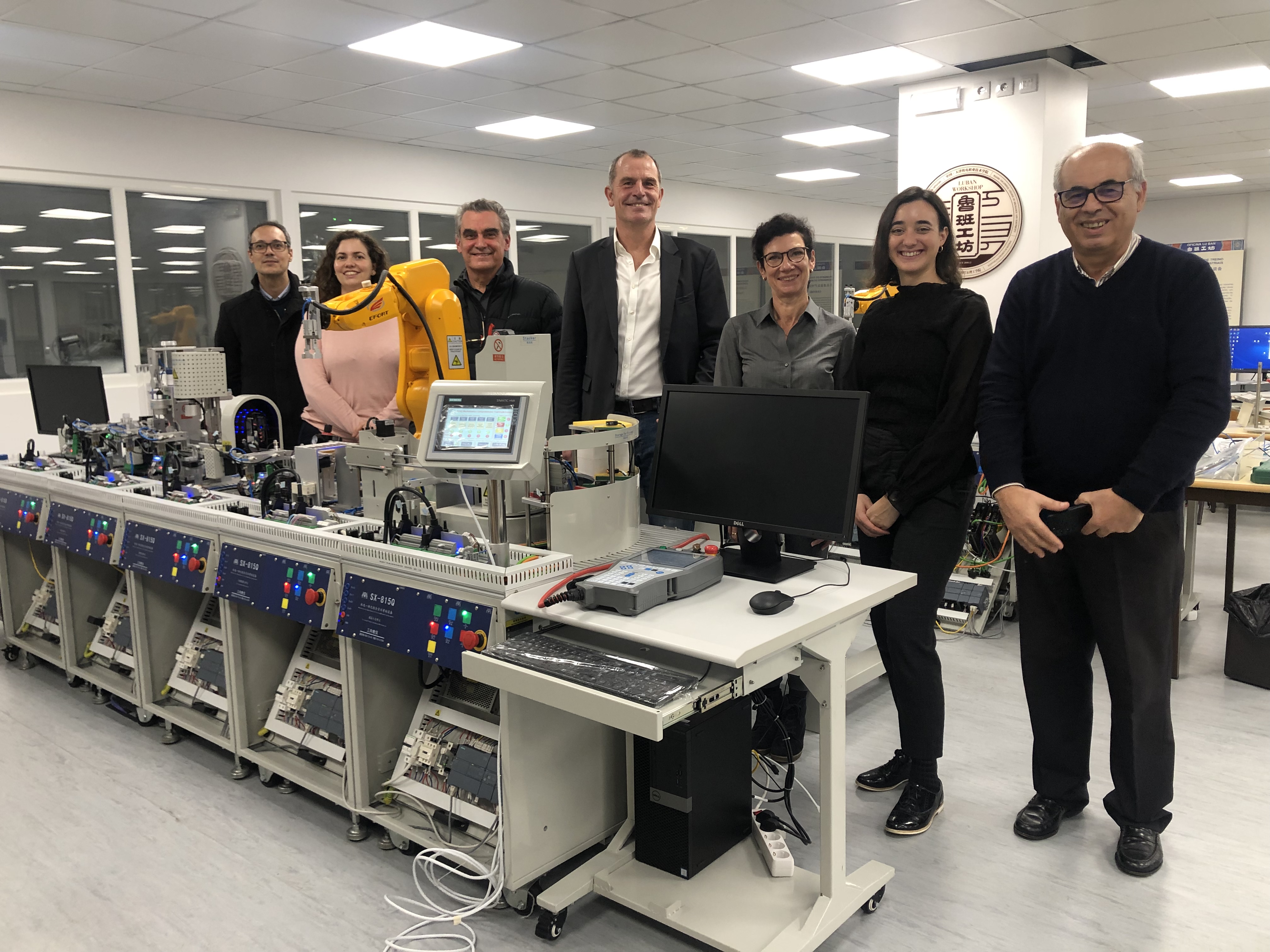
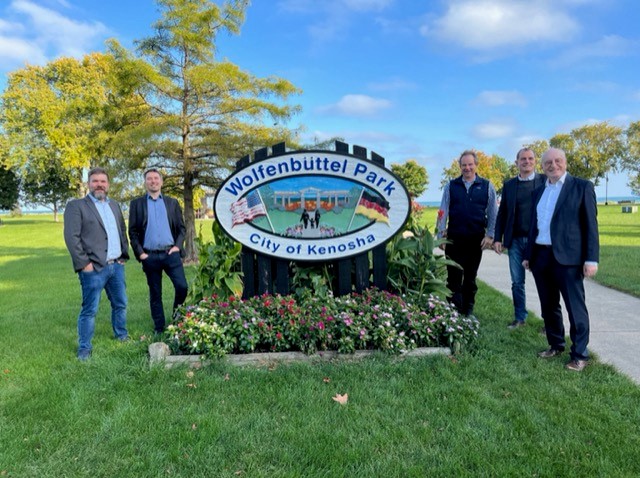
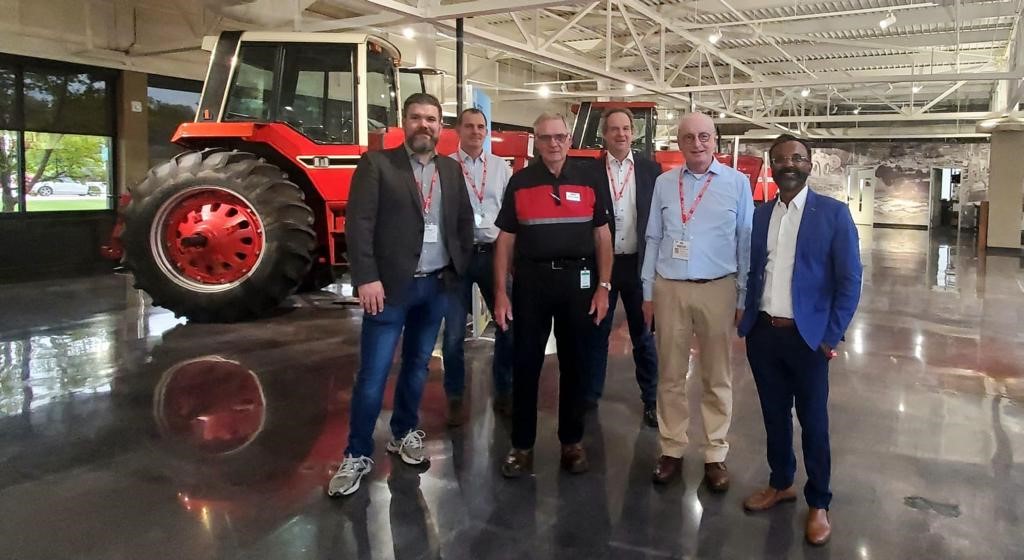
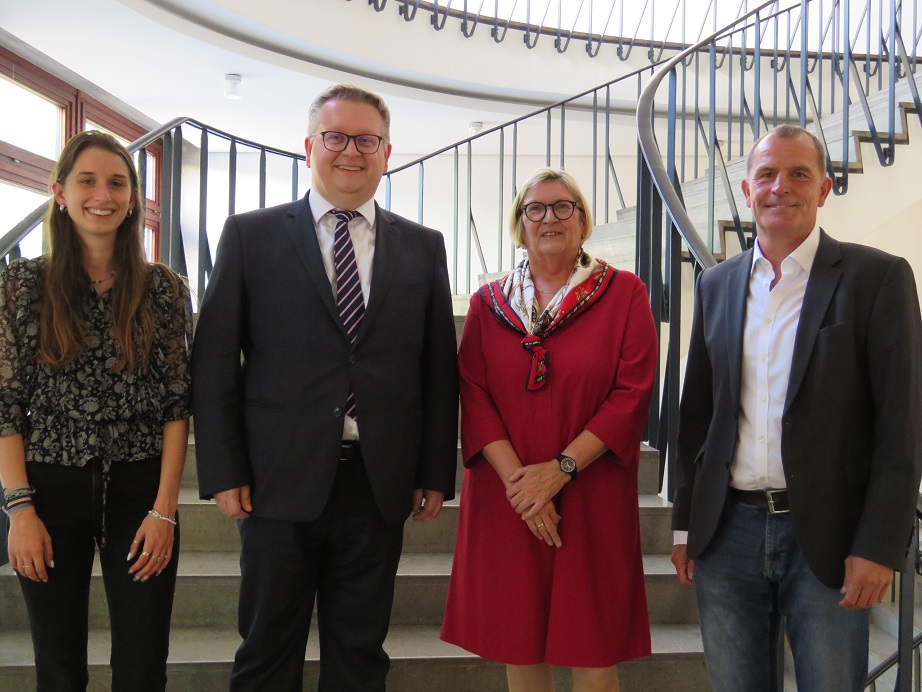
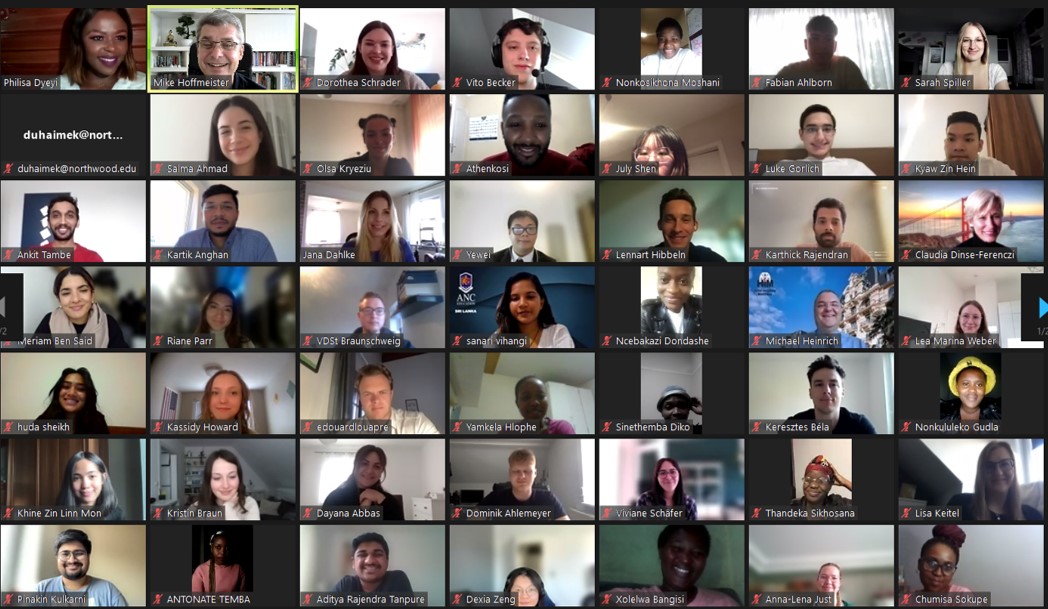
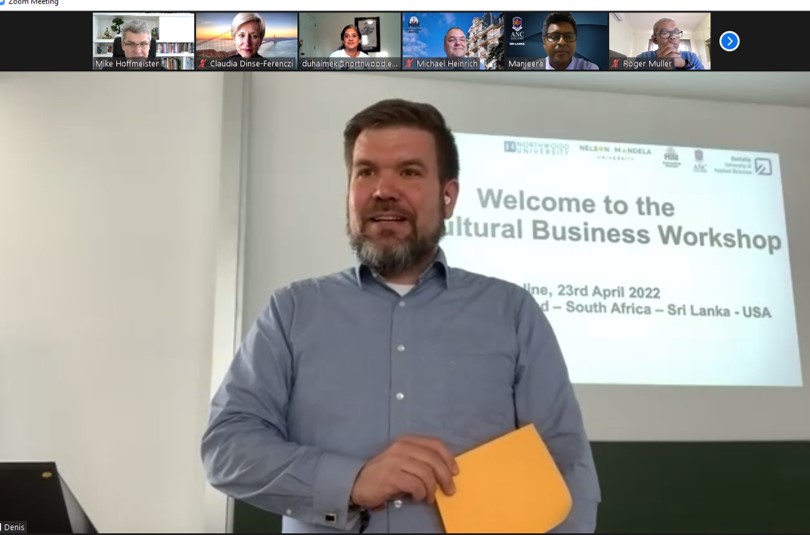



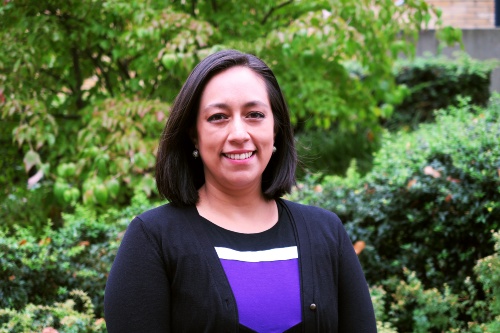
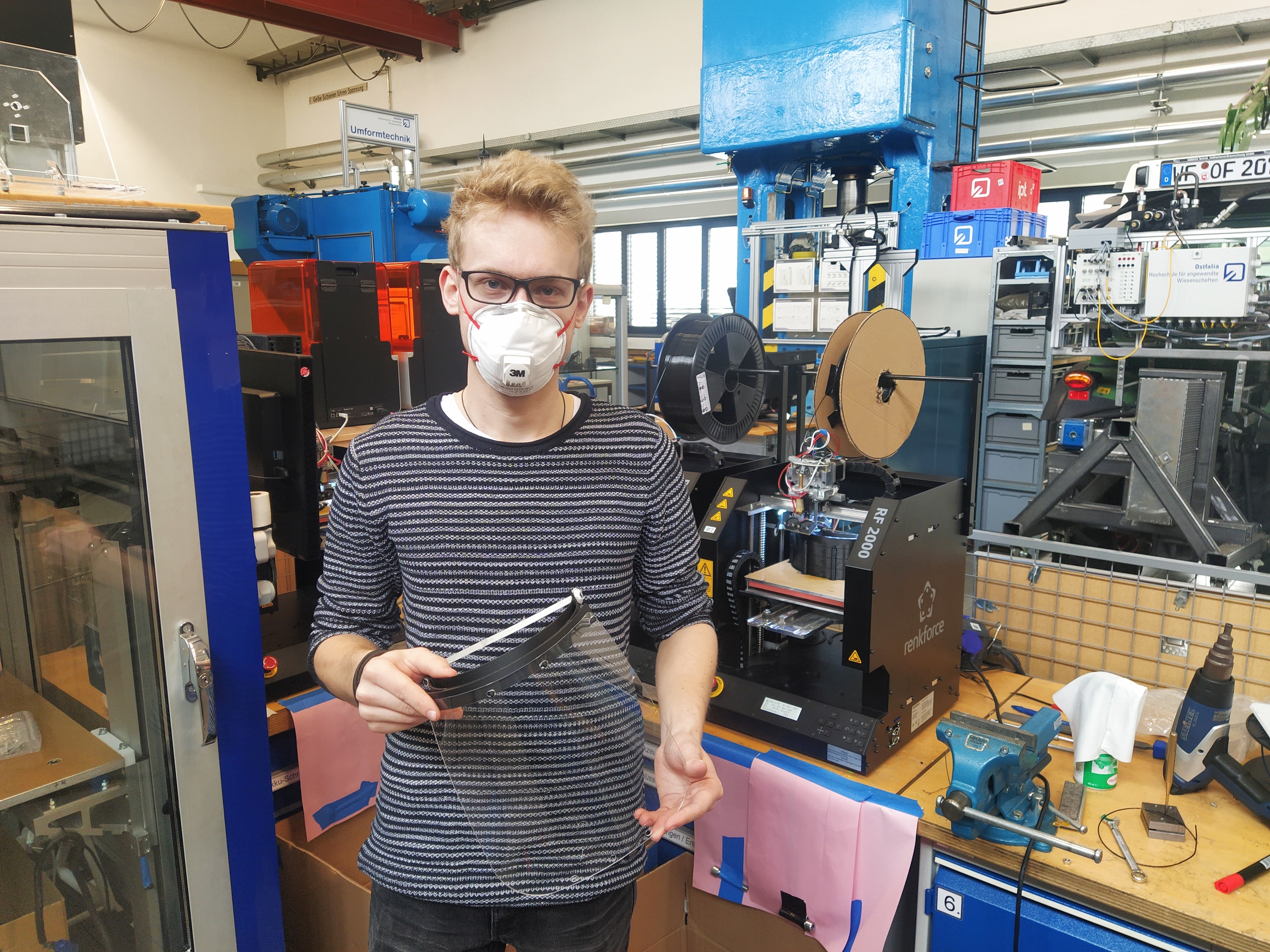 Production of components for face shields in the center for additive manufacturing
Production of components for face shields in the center for additive manufacturing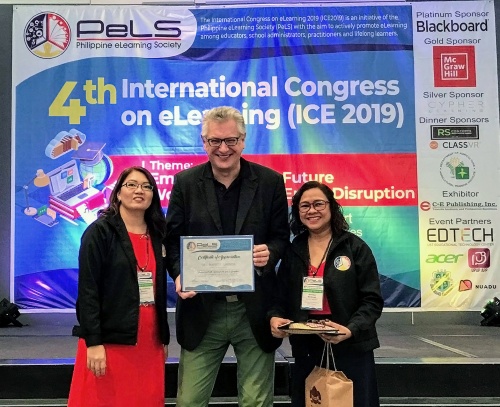
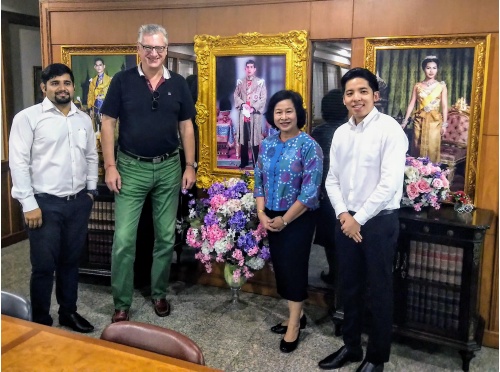
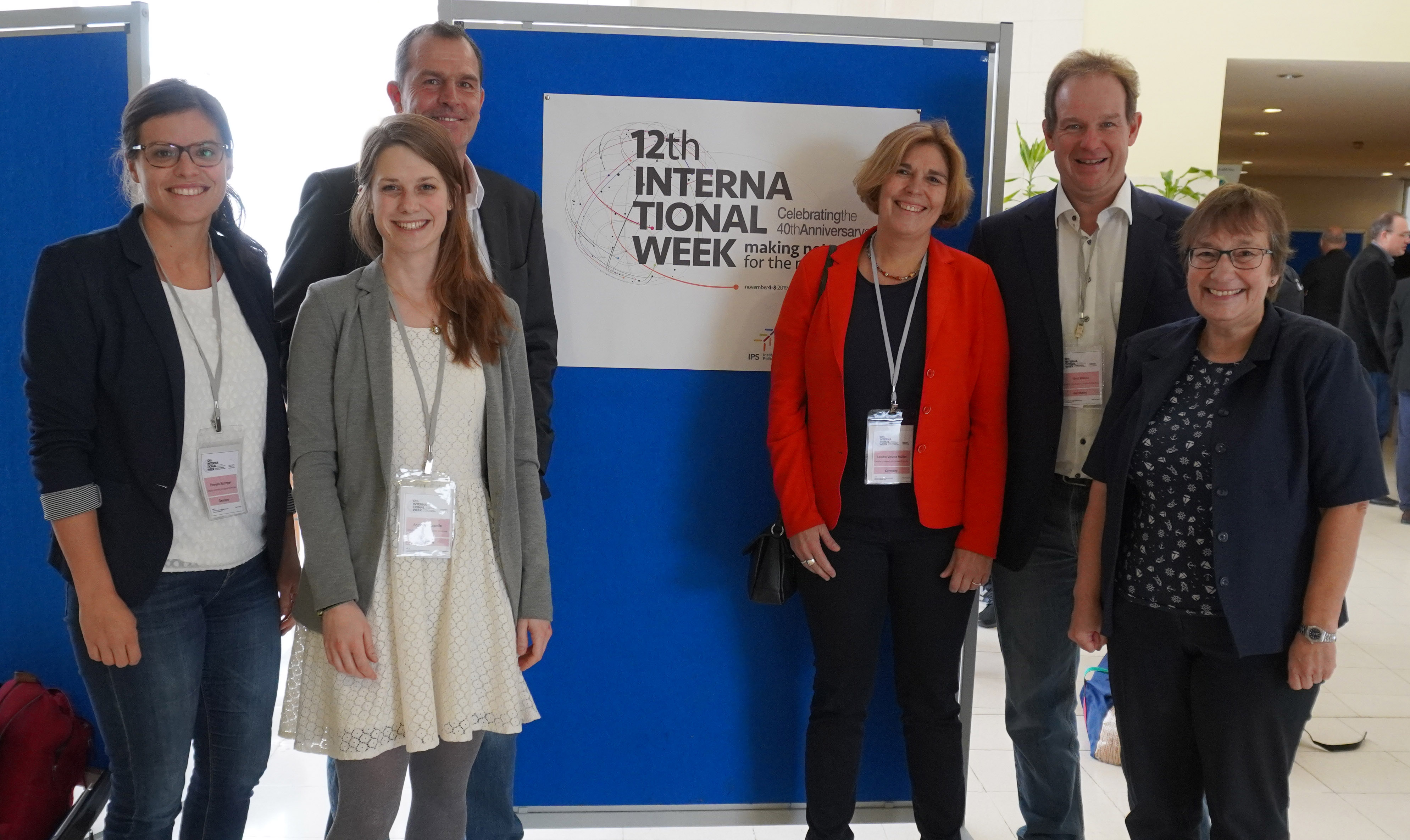 For the Ostfalia at the International Week (from left): Theresa Springer, Angelina Capelle, Kai
Hillebrecht (all knowledge and technology transfer), Sandra Verena Müller (Faculty of Social Work),
Gert Bikker (Vice President & Faculty of Computer Science), Brigitte Wotha (Faculty of
Transportation-Sport-Tourism-Media). Martina Hasseler (Faculty of Public Health) is missing. Photo:
Ostfalia
For the Ostfalia at the International Week (from left): Theresa Springer, Angelina Capelle, Kai
Hillebrecht (all knowledge and technology transfer), Sandra Verena Müller (Faculty of Social Work),
Gert Bikker (Vice President & Faculty of Computer Science), Brigitte Wotha (Faculty of
Transportation-Sport-Tourism-Media). Martina Hasseler (Faculty of Public Health) is missing. Photo:
Ostfalia 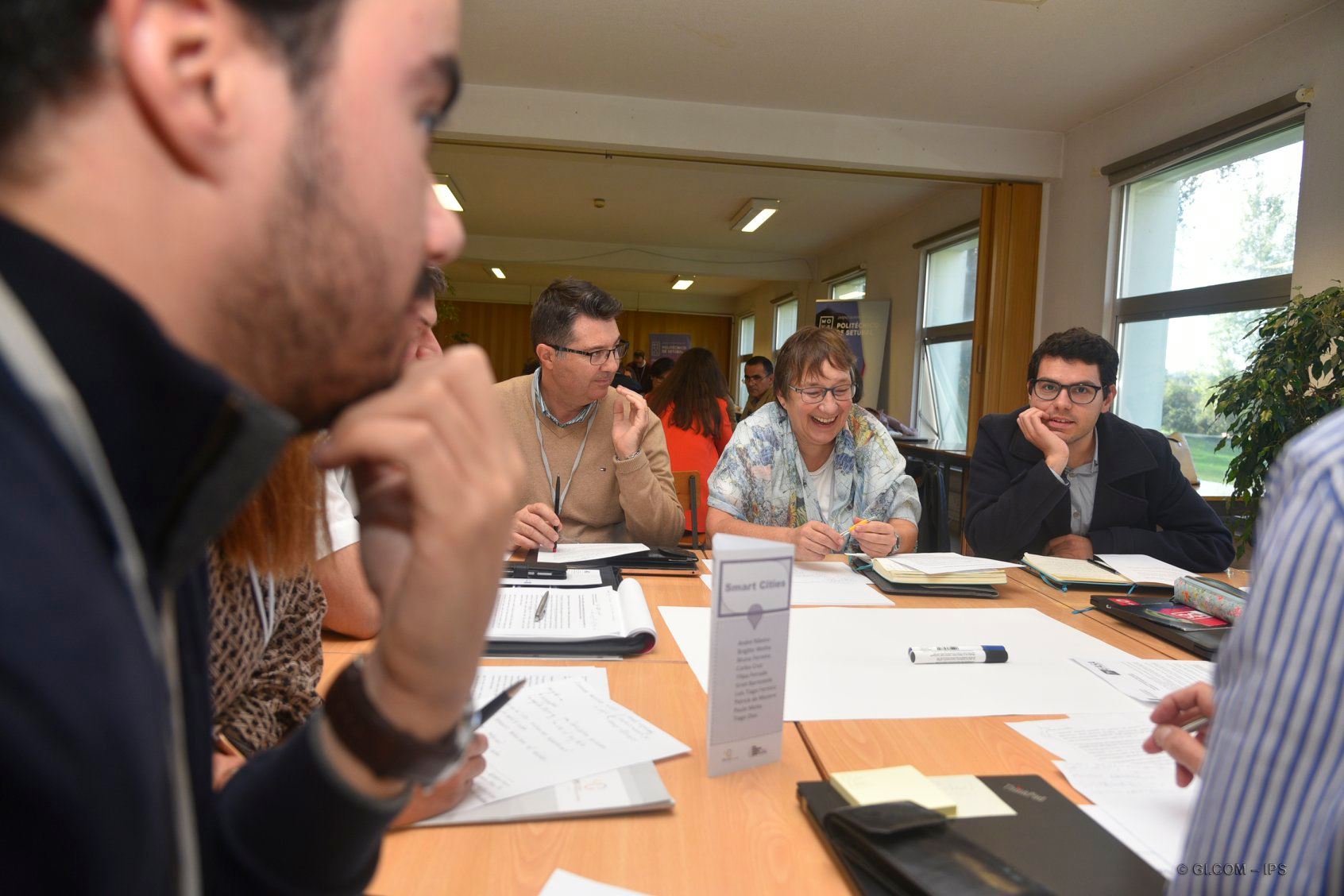 At the Round Tables, the participants jointly developed project ideas for current tenders.
Photos: Ostfalia and GiCOM
At the Round Tables, the participants jointly developed project ideas for current tenders.
Photos: Ostfalia and GiCOM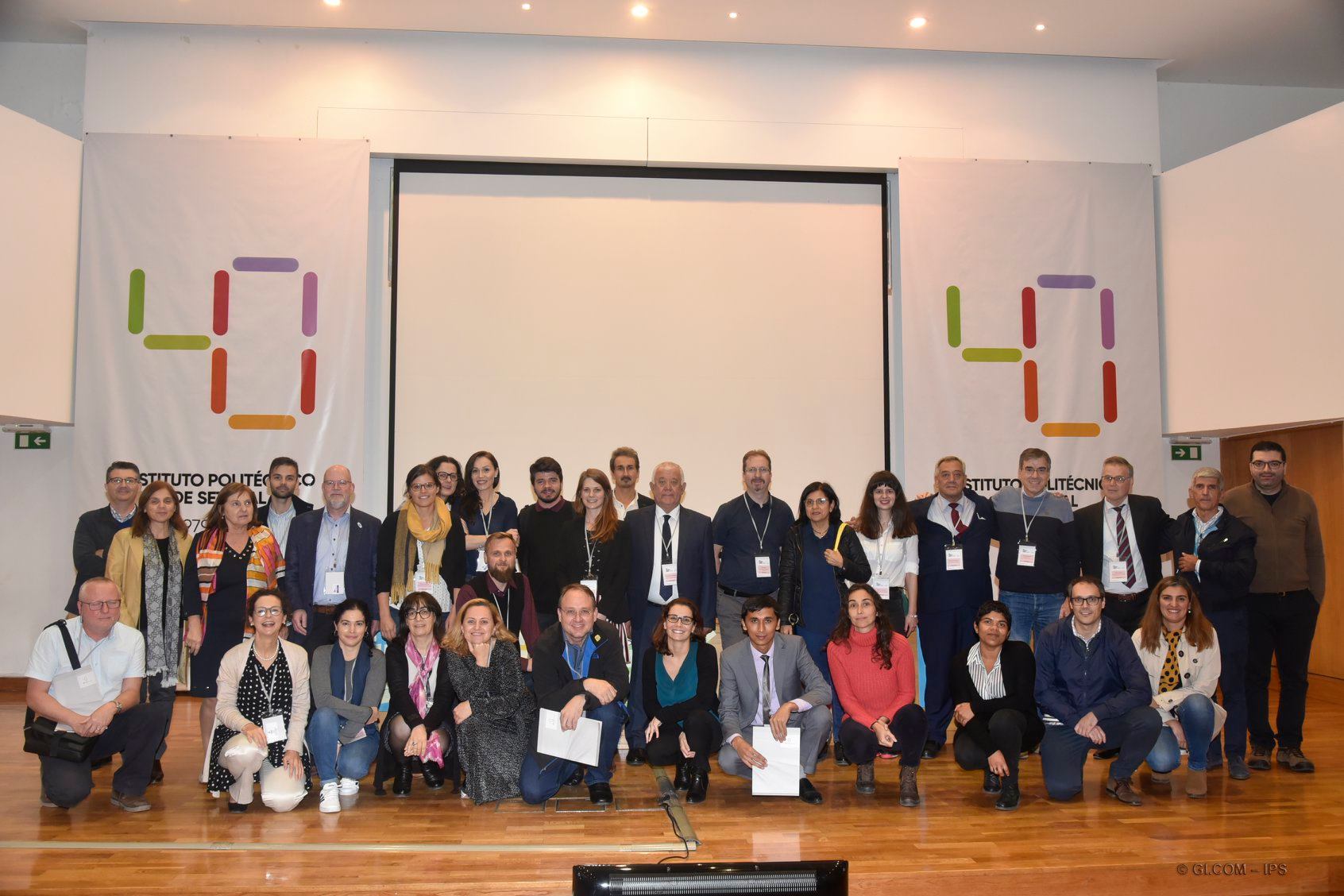
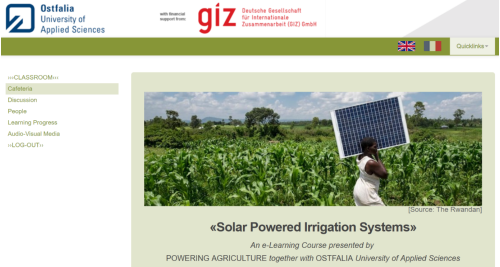
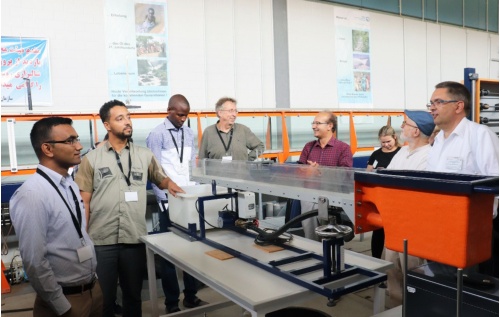
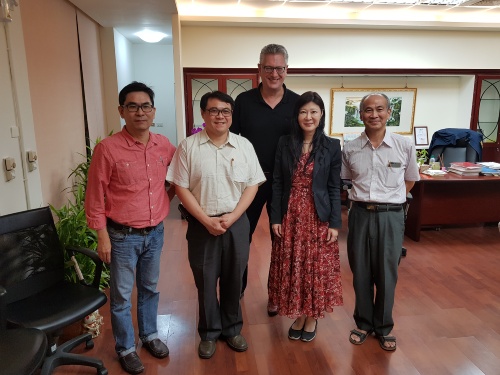 One of many new contacts in Asia: At the Open University of Kaohsiung in Taiwan Professor
Launer met with president Prof. Liu Chia-ju and her colleagues of the departments of research,
e-learning and languages. It was the second visit after last year’s discussion about research on
e-learning.
One of many new contacts in Asia: At the Open University of Kaohsiung in Taiwan Professor
Launer met with president Prof. Liu Chia-ju and her colleagues of the departments of research,
e-learning and languages. It was the second visit after last year’s discussion about research on
e-learning.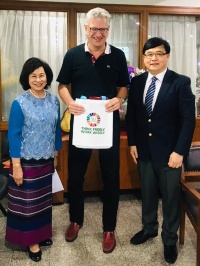
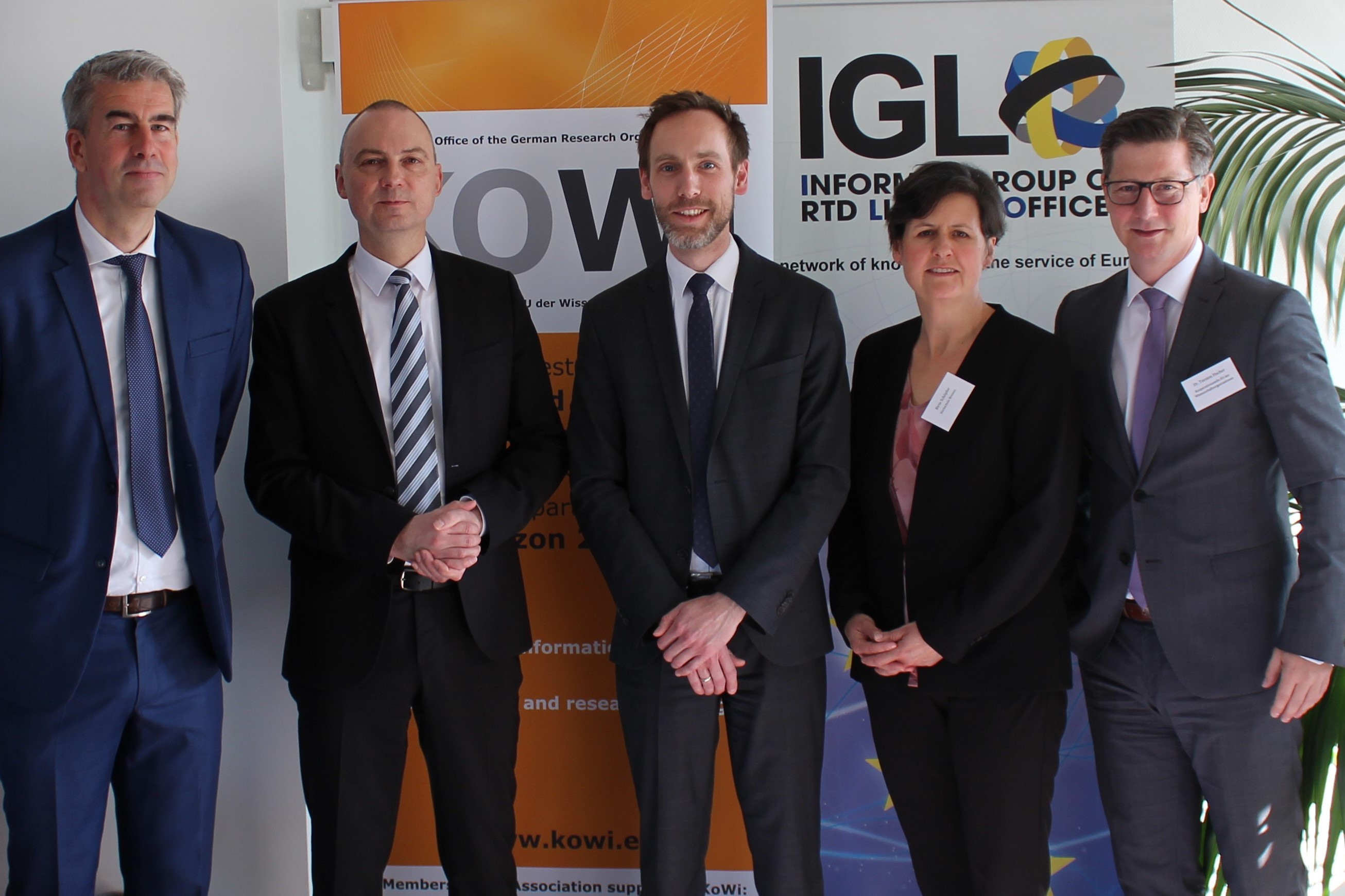
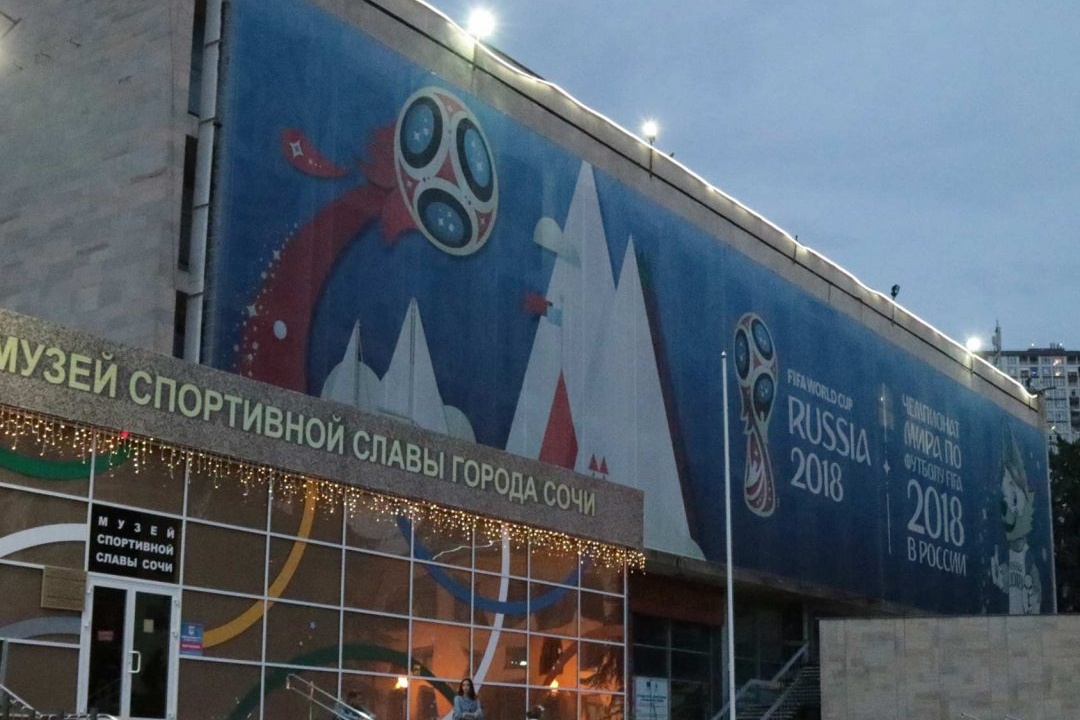
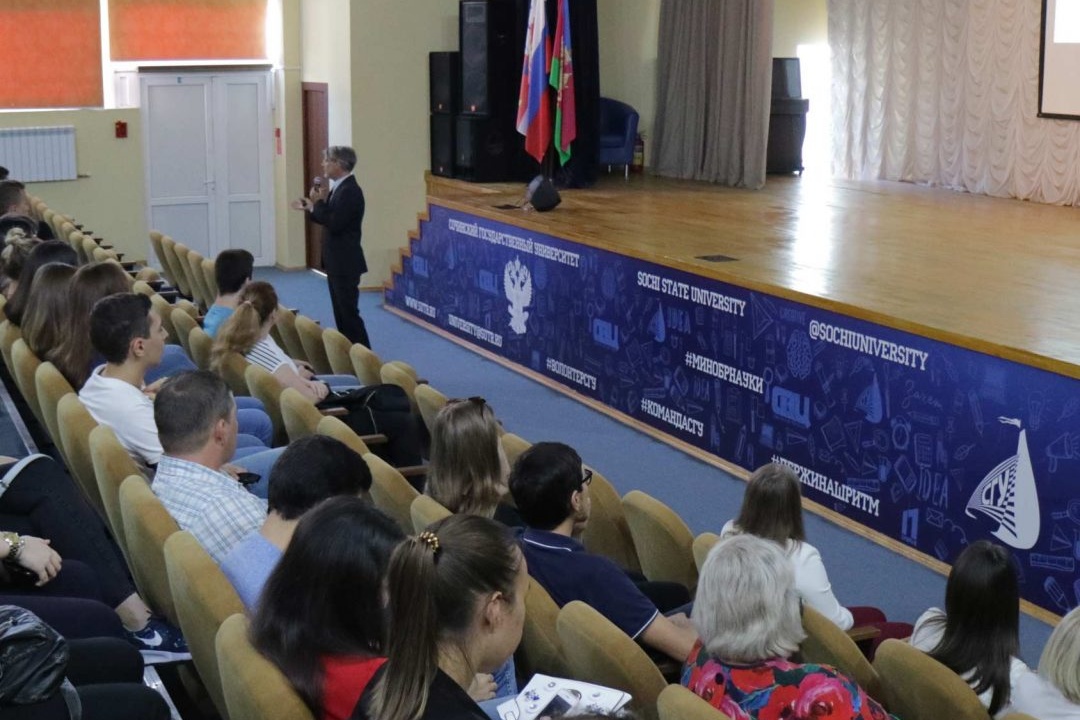

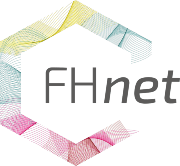
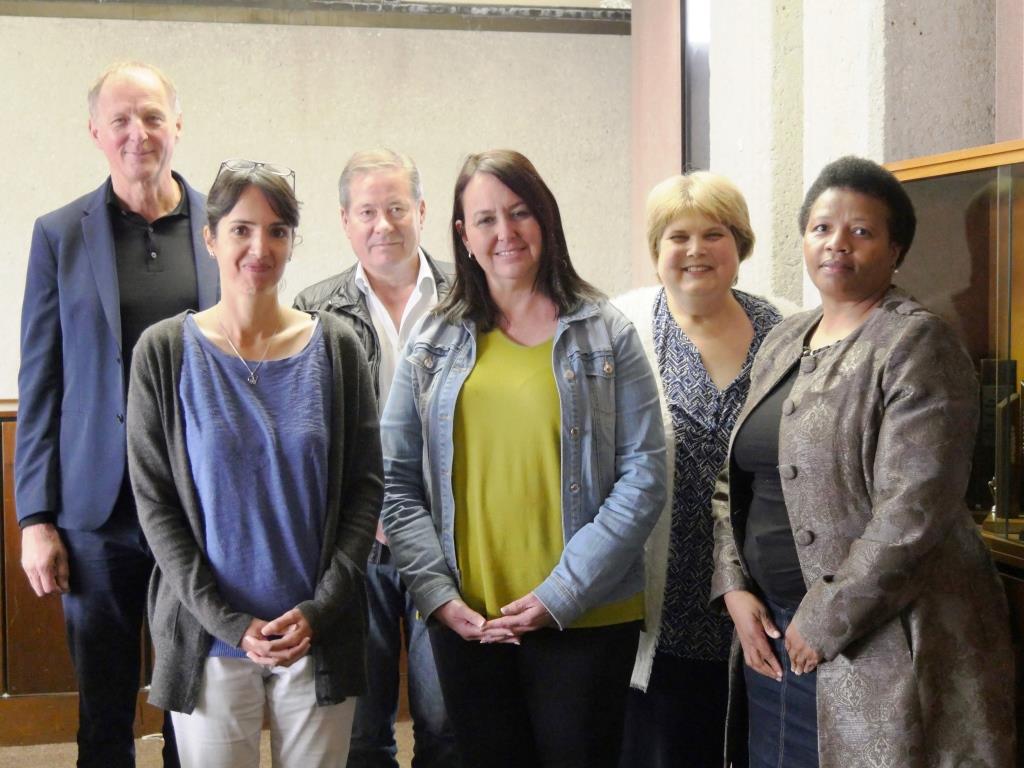
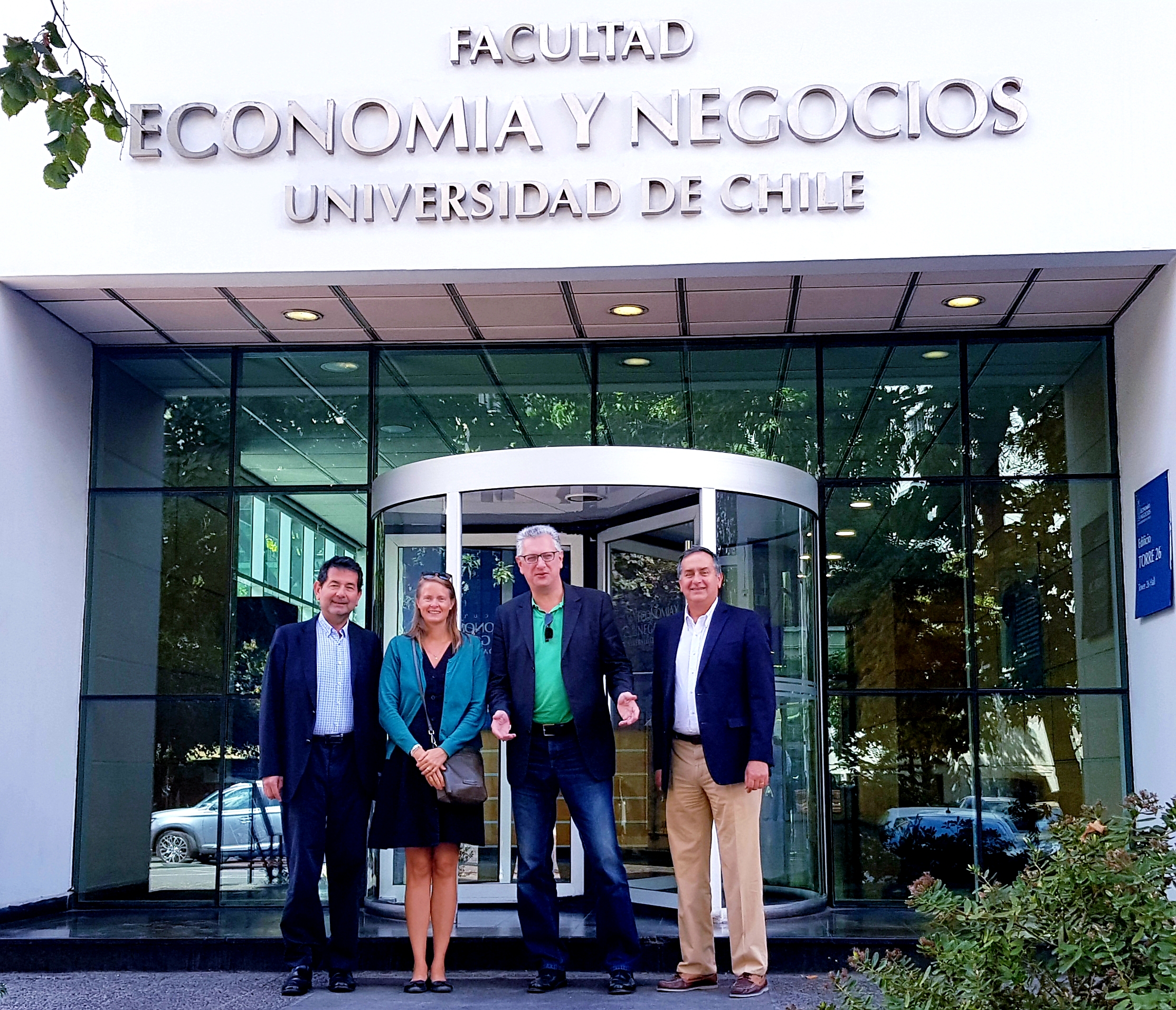
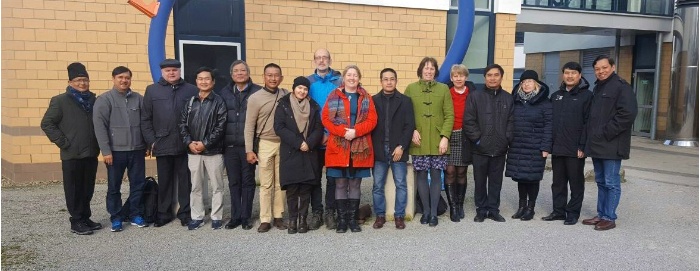 Visitors from Asia
Visitors from Asia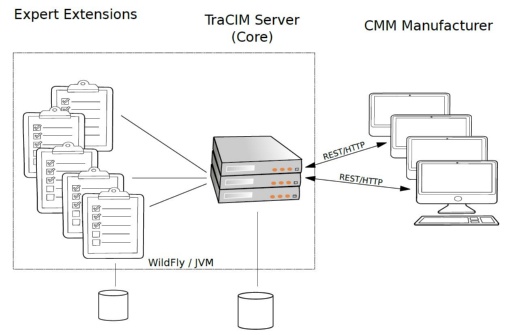 The modell of the server application
The modell of the server application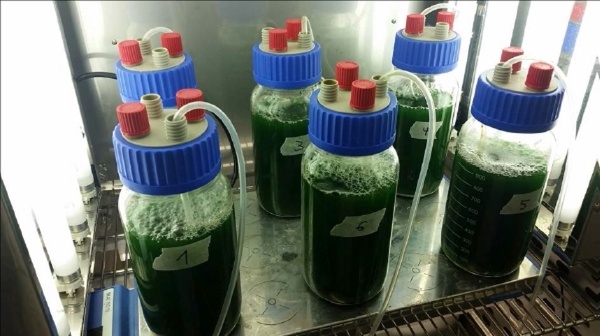 Cultivation of endemic algal species for test on bioremediation efficiency
Cultivation of endemic algal species for test on bioremediation efficiency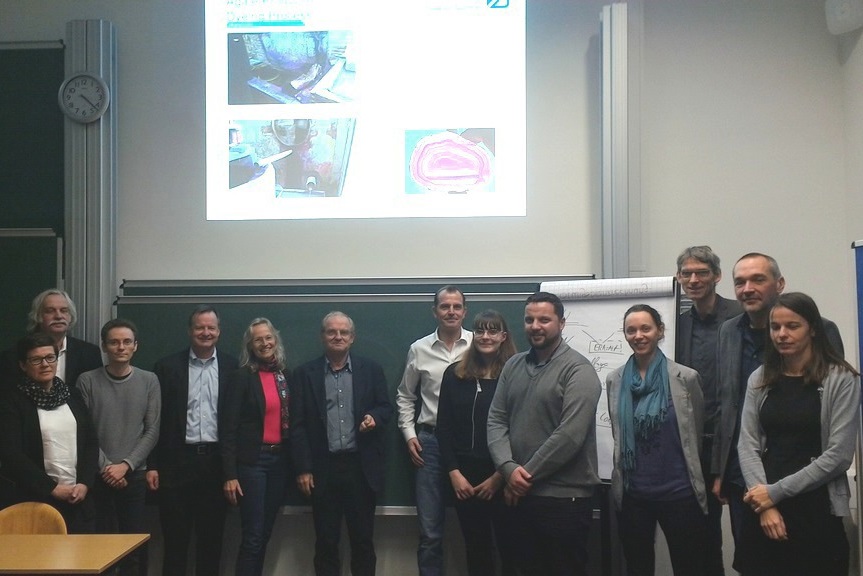
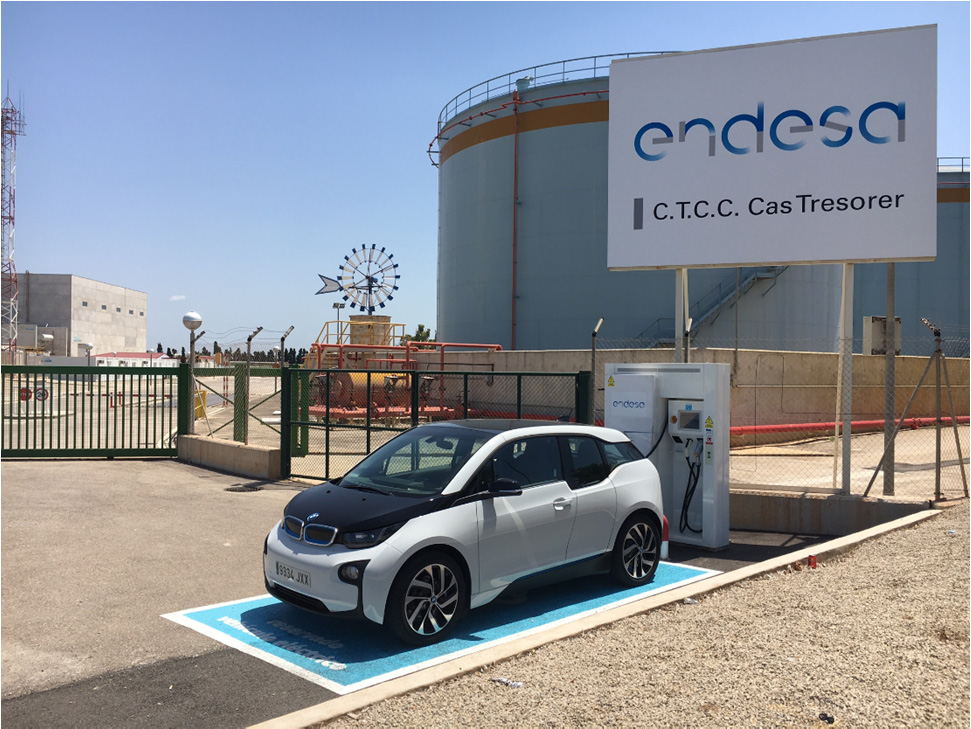 DC quick charge station of local energy provider Endesa
DC quick charge station of local energy provider Endesa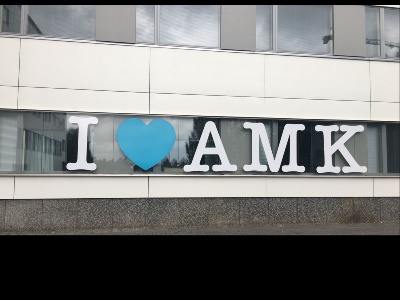
 The project partners in Aarhus
The project partners in Aarhus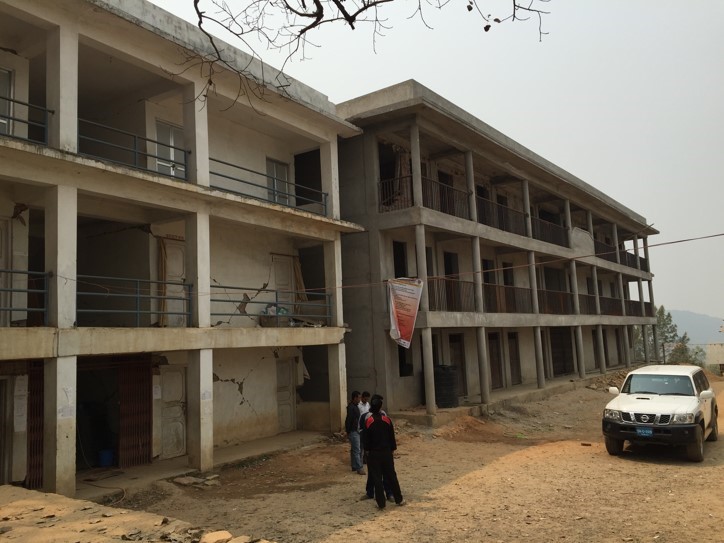 Nepal
Nepal